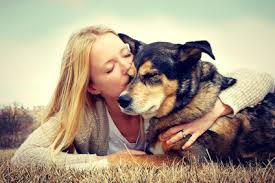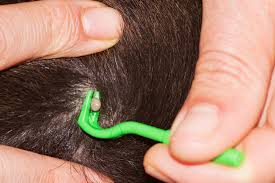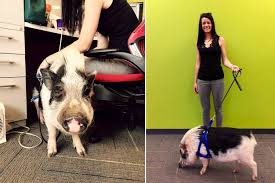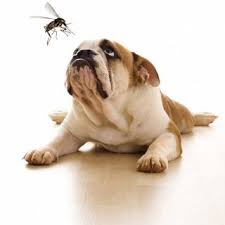Should You Have Pet Insurance?
Doc Halligan, The Lucy Foundation
 If you don't have it, you've probably asked yourself whether you should have pet insurance for when the unexpected happens. Since pets are living longer and our veterinary medicine has advanced, options for emergency treatment can be costly unless you have insurance. But that doesn't necessarily mean, 'go out and get it.' Doc Halligan has important tips for deciding if you should get it and choosing the right policy.
If you don't have it, you've probably asked yourself whether you should have pet insurance for when the unexpected happens. Since pets are living longer and our veterinary medicine has advanced, options for emergency treatment can be costly unless you have insurance. But that doesn't necessarily mean, 'go out and get it.' Doc Halligan has important tips for deciding if you should get it and choosing the right policy.
Whether or not to acquire pet insurance is a tough decision, but Doc Halligan always starts of with asking the question to pet owners of, "Would you do anything that you could to save your pet's life?" If you answered yes, then you need to get insurance.
Doc Halligan states that if your pet is like family, and you would do anything your could to keep them alive with a good quality of life, then you need to look into pet insurance, because financial euthanasia is not an option for you.
It sounds awful, but for some people euthanasia is their only option. They may love their pet as much as you love yours, but they don't have the financial means to do whatever is necessary.
But which insurance do you choose? Is it better to get your pet covered while they're young? There are so many questions and so many policies available that can range from $10 to up to $100 a month, depending upon what type of coverage you want. You can get a policy that covers everything, including annual examinations and vaccinations, or a policy just for emergencies.
Doc Halligan usually suggests that a pet owner add up the expenses for each pet for the last five years. This will give you an idea if you have one of those pets that is always getting into trouble or a pet that never has any problems.
Not all insurance companies are the same, so you must get individual quotes from several. Like in any profession, you will find that some insurance companies are much better than others.
So how do you select one? You want to make sure that an insurance company has been in business for a few years. You want to make sure that they are also licensed in your state, as all insurance companies are not licensed in all states. You can also ask you veterinarian and other pet owners what insurance company they use and what they like or don't like about them.
 Like with any insurance policy, read the fine print so there are no surprises. Some policies won't cover hereditary or congenital defects and others will.
Like with any insurance policy, read the fine print so there are no surprises. Some policies won't cover hereditary or congenital defects and others will.
The best thing to do when you get a new puppy or kitten is to just get the insurance, which is probably the cheapest time to get it. When they are young, they usually don't have any pre-existing conditions, but when they get older, it becomes pricier.
An alternative to insurance is to start a savings account for you pet. This is harder than it sounds, because most people will spend it on other items. Plus, the cost of veterinary care has gone up a significant amount in the last few years. So it might be best to just get the insurance, but again, read the fine print!
The Mission of The Lucy Pet Foundation is to reduce pet overpopulation by having mobile spay/neuter clinics across the country and to support causes that benefit animal welfare. The Lucy Pet Foundation not only offers free and reduced spays and neuters, they also do microchipping, vaccines and de-wormings. Spaying and neutering is not only great for pet population control, but it has been proven that an animal will live on an average of 40-percent longer after having this surgery.
Visit Website
Finding Jobs for the Un-Adoptable
Pete Coppolillo, Working Dogs For Conservation
 Pete Coppolillo scours shelters for dogs that display traits undesirable for adoption. He especially looks at prey drive, as these dogs make excellent "working conservation dogs." And Pete is happy to give these dogs a job and a home.
Pete Coppolillo scours shelters for dogs that display traits undesirable for adoption. He especially looks at prey drive, as these dogs make excellent "working conservation dogs." And Pete is happy to give these dogs a job and a home.
Pete Coppolillo is the executive director at Working Dogs for Conservation, the world's leading conservation detection dog organization.
Years ago, dogs were mainly used to detect scat (poop) from other animals including grizzly bears, wolves and links. Now, conservation detection dogs do all kinds of work assisting in conservation efforts by detecting otherwise hard to find wildlife and plants, identifying invasive species for eradication, finding direct threats to wildlife like illegal snares and poison, sniffing out illegal ivory and bushmeat and helping scientists gather wildlife population data.
All dogs are physiologically capable of doing this type of work, with the exception of the brachycephalic breeds, like the pugs and bulldogs. Dogs have a fabulous olfactory system. Their noses are thousands and even millions more times sensitive than ours. The most important characteristic is their drive and desire to work.
In the wake of 911 and the following wars, there is a global shortage on detection dogs, as they are being used for security. Dogs for this type of work used to be sourced from breeders, but now some breeders are breeding dogs that shouldn't be bred just for the money. So with the shortage, the decision was made to look for dogs in shelters.
There are really great, talented dogs in shelters that are being put down. In order to maximize adoption rates for these dogs, the International Fund for Animal Welfare (IFAW) teamed up with Working Dogs for Conservation (WDC) to form a program Rescues 2the Rescue.
Rescues 2the Rescue aims to place high-energy dogs in careers and homes that complement their vitality. The program provides a platform for shelters and conservation detection dog organizations and trainers to connect and communicate, as well as standardized evaluation tools for assessing a canine's potential to be a working dog.
Visit Website
Who Doesn't Like Dogs? - Dr. Debbie
 I love dogs, and always have. But what happens when you discover a close friend doesn't merely not like dogs, but actually hates them?
I love dogs, and always have. But what happens when you discover a close friend doesn't merely not like dogs, but actually hates them?
I've been operating under the assumption that those who don't like dogs must have some evil lurking in their spirit and were destined to a life of incarceration. Just look at the statistics of criminals that abuse animals early on and who later progress to physical abuse of people, murder, or other sociopathic behaviors.
I'll admit not liking dogs is a far cry from turning one's hand to injure an animal or person, but some uncomfortable association is still there. As a full-fledged dog lover, or enthusiast of any animal for that matter, I cannot understand the psyche of an individual that is satisfied going about their life without animal companionship.
Any pet lover can spout off a list of benefits their furry one brings to their life…the steady comfort of companionship, a non-judging ear to hear out the day's tribulations, a workout or hiking buddy and a source of unconditional love at the end of a long day.
So, imagine my shock when I realized that a couple I know doesn't like dogs. Not just that they don't have dogs or misunderstand them - they actually dislike dogs.
Hint of this fact should have been apparent long ago when they were over for dinner and they politely stood stiff as a Calvary front line, when greeted by my yapping terrier mix. Or that they failed to stroke my Labrador's chin after receiving the gentle nudge of the typical canine greeting upon entering the home. The polite perfunctory smiles went un-noticed by me. "Sure, they don't have dogs," I reasoned as to why they weren't charmed by my little dog's amusing tail wagging display or by the steadfast devotion of my Labrador's greeting.
All of these sign posts I missed. I clearly misjudged all along. The couple, who I just assumed were just not yet fortunate to understand the benefits of pet companionship, were actually formidable dog dislikers.
Realization struck me during a recent conversation with this couple. I was laughingly describing the vast differences in dog breed behavior comparing my former Labradors, to that of my current Bouvier. My comments must have been mistaken as some underhanded means to convince them the right breed was out there for them. At that moment, my guest raised hands and said, "I know what I like and don't like, and I don't want dogs." Clearly they didn't like dogs - and they misunderstood my comment as some means to turn them over to the canine side against their will. Astounded, I marveled how this response was not unlike a person who is recommended a mushroom containing side dish or gourmet meal from a fine restaurant, and who declares "I can't stand mushrooms and don't want anything to do with mushrooms!"
 So why didn't I catch on to these dog haters sooner? For those of us that have pets, of any type, we recognize the many joys our pets bring to our lives. There are folks that don't want to bring that companionship into their life. The cogs of their lives have clicked along just fine without a pet in their life. Somehow lots of well-educated, social and seemingly normal people can raise a family and be successful and still dislike dogs.
So why didn't I catch on to these dog haters sooner? For those of us that have pets, of any type, we recognize the many joys our pets bring to our lives. There are folks that don't want to bring that companionship into their life. The cogs of their lives have clicked along just fine without a pet in their life. Somehow lots of well-educated, social and seemingly normal people can raise a family and be successful and still dislike dogs.
Maybe we should feel sorry for them. Or maybe they feel sorry for us, for all the money, heart and time we put into a pet companion who's lifespan doesn't come near to that of a humans. They probably laugh at our reckless expenditures on a being who lives just a fraction of human life. I chose not to spend time wondering how they have made it without animals in their life…rather that I have succeeded because I have been fortunate to have animals in my life.
I ask that these non-pet people save their pity for me and my pets, because I know that any one of my dogs could say they lived live fuller than most people - full with adventure, splendor at new experiences and embracing the moment. And so have I at their side. So should the question come up at the time of my next life, I'll take both a side of mushrooms…and pets on the side.
Featured veterinarian known as "Dr. Debbie" on national pet radio program, Animal Radio. Ebook author of "Yorkshire Terriers: How to Be Your Dog's Best Friend"; "Pugs: How to Be Your Dog's Best Friend"; "Mini Schnauzers: How to Be Your Dog's Best Friend"; and "Shih Tzu: How to Be Your Dog's Best Friend." Dr. Debbie's books.
Visit Website
The Dogfather's Grooming Tip with Joey Villani
 How To Safely Remove Ticks From Your Pet
How To Safely Remove Ticks From Your Pet
Most people are afraid to deal with ticks on their pet and are not sure what to do. The good thing is that ticks don't move very fast and will come off your pet fairly easy, but it's not for the squeamish.
If you're going to remove ticks from your dog, make sure you have the proper tool. The best took for the job is the "Tick Remover." It almost looks like a plastic spoon with a "V" cut out on the spoon end. You just take the "V" and put it down underneath, at the lowest part of the tick near your dog's skin, and use it as leverage to pop out the tick.
Some people say you can pull them out with tweezers by twisting the tick. Or, you can use a hot match or cigarette. Don't try any of these! You need to get as close as you can to the skin, because the last thing you want to happen is for the tick to break off, leaving part of the tick still under the skin, which can lead to an infection. Or, if you don't remove the tick, they can actually "vomit" injecting all types of diseases into your pets.
So get a tick remover and grab the tick as close as you can to their head, where it is buried down into the skin. You will then pull straight out and the tick should come out easy. You should then dispose of the tick in a container of rubbing alcohol. You can either throw the rubbing alcohol in the trash or keep it and take it to your vet to see if it is carrying any disease. If you do see any sort of redness or irritation after removing the tick, take your dog to your veterinarian.
If you are uncomfortable removing ticks, you can either take your pet to your local groomer or to your veterinarian and have them remove it.
Animal Radio News - Lori Brooks
 Lake Algae Can Be Harmful To Your Dog
Lake Algae Can Be Harmful To Your Dog
If your dog likes to swim, it's probably best to make sure he only swims in the pool this summer and not lakes. Pet owners need to be aware of algae-ridden lakes and foul-smelling water after toxins from blue-green blooms have killed some dogs. Although not all algae are harmful, poisonous blooms typically look like pea soup, green paint or floating mats of scum and the clusters often have a strong stench like cow manure. Animals are at far greater risk than humans to be harmed by the algae blooms because they tend to wade in the shoreline areas where algae usually accumulates and animals aren't usually deterred by the bad smell.
Don't Invite Your Dog To A Barbecue
One of the fun things about outdoor cookouts and barbecues is there's almost always pets on the guest list! But a lot of what's on the menu at a cookout can be bad for dogs and cats. The worst items on the menu are corn-on-the-cob, ribs, chicken wings and other bones, which create a choking hazard and possible obstruction. Also on the list are hot dogs. They're not the healthiest for you or your pet and can cause digestive upset. Onions are also on the list, along with avocados, chocolate, alcoholic beverages and chips and pretzels because of the high sodium content and grapes!
 Take-Your-Dog-To-Work-Day Includes Snakes, Pigs & Parakeets
Take-Your-Dog-To-Work-Day Includes Snakes, Pigs & Parakeets
As take-your-dog-to-work-day becomes the everyday norm in many offices, owners of less common pets have demanded equality. If dogs are welcome at work, then others such as feathered, furry, winged and scaly companions should be allowed at the office too although some co-workers don't agree. Around the country, there's just about every kind of workplace with nearly every kind of pet and we've heard all the benefits about having pets in the workplace, whether it's a pig, a parakeet, butterfly, or snake! Yes even snakes are allowed at the Seattle headquarters of Amazon. About 8-percent of U.S. companies allow pets at work and the practice seems to be especially prevalent among tech firms.
Fish Can Help Kids With Type 1 Diabetes
For children with Type 1 Diabetes who want a pet it's all come together. A study shows pet ownership can have a beneficial effect on kids who are Type 1 Diabetes, showing improved glycemic control after several months spent caring for a pet fish! The research was published in The Diabetes Educator. Researchers said, "Teenagers are one of the most difficult patient populations to treat, mainly because of all the psycho-social factors associated with growing up." Turns out that associating diabetes self-care tasks with routine, daily activities (like taking care of a pet fish) helps the kids remember to do their own self-care and ultimately improves their glycemic control.
 Protect Your Pets From Mosquitoes This Summer
Protect Your Pets From Mosquitoes This Summer
In many parts of the country this summer's heavy rains have brought an increase in the number of mosquitoes. Of course you know to protect yourself, but don't forget about your pets. Protecting your dogs and cats from mosquitoes protects them from Heart Worm Disease. Horses can get West Nile virus from mosquitoes, but there is a vaccine for horses. So now it's doubly important to make routine rounds of your yard looking for things that hold rainwater where mosquitoes breed. Remember, mosquitoes can breed in less than a thimbleful of water.
 Listen to the entire Podcast of this show (#1183)
Listen to the entire Podcast of this show (#1183)





